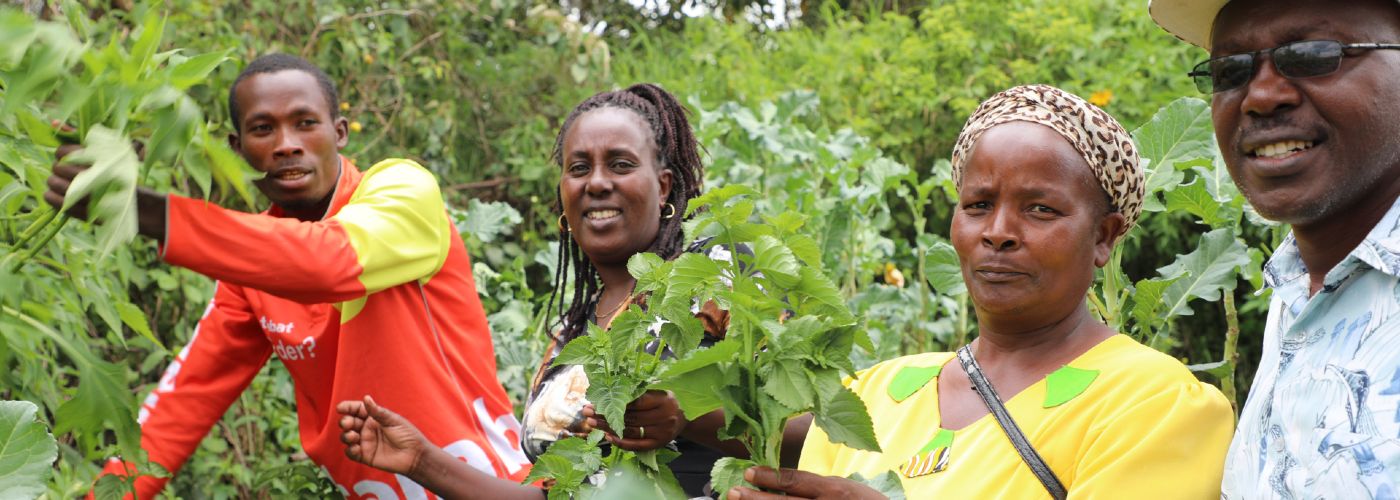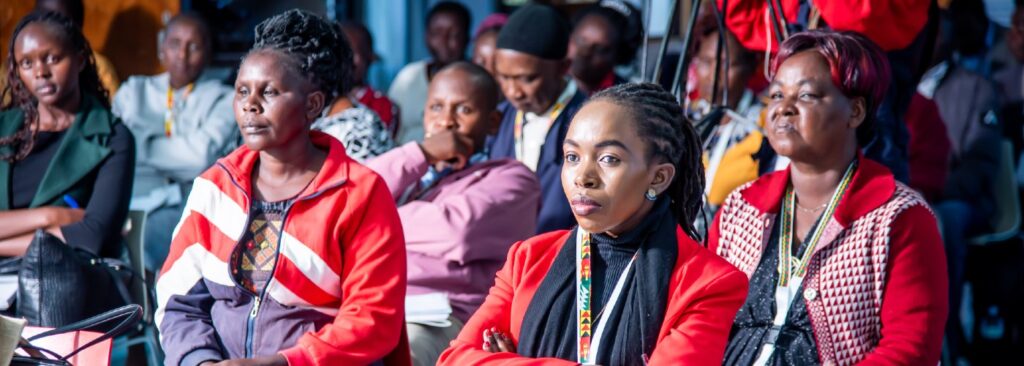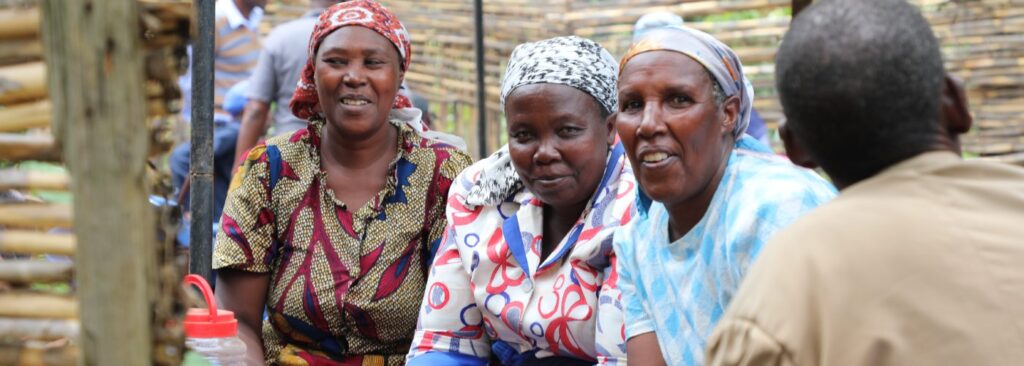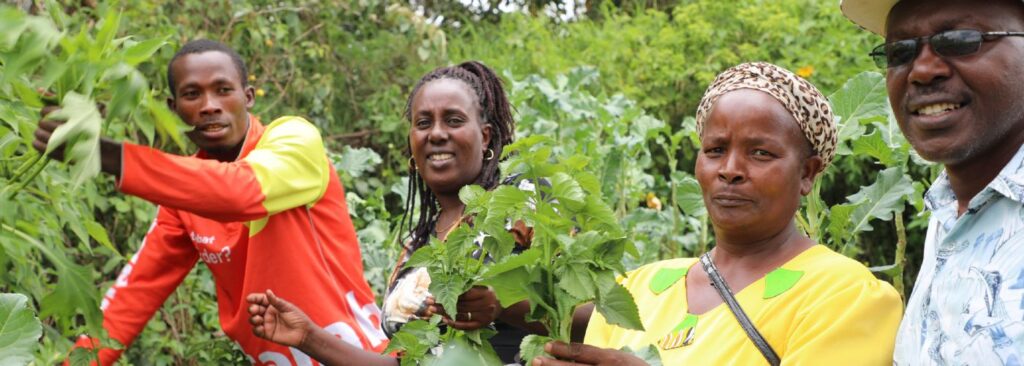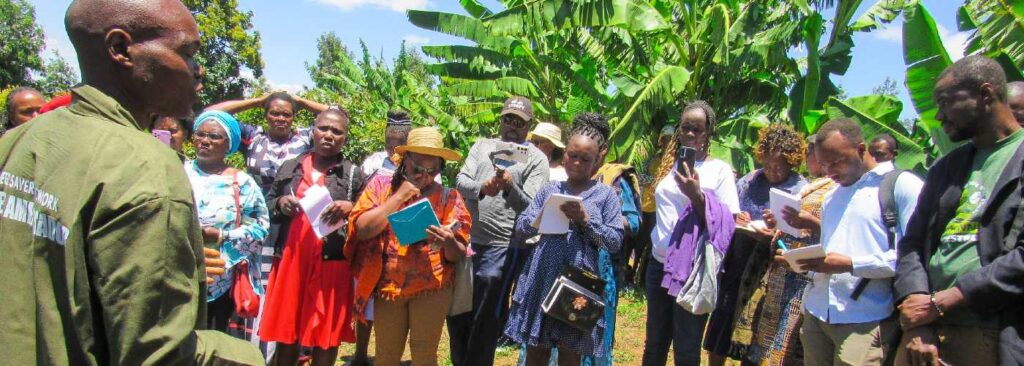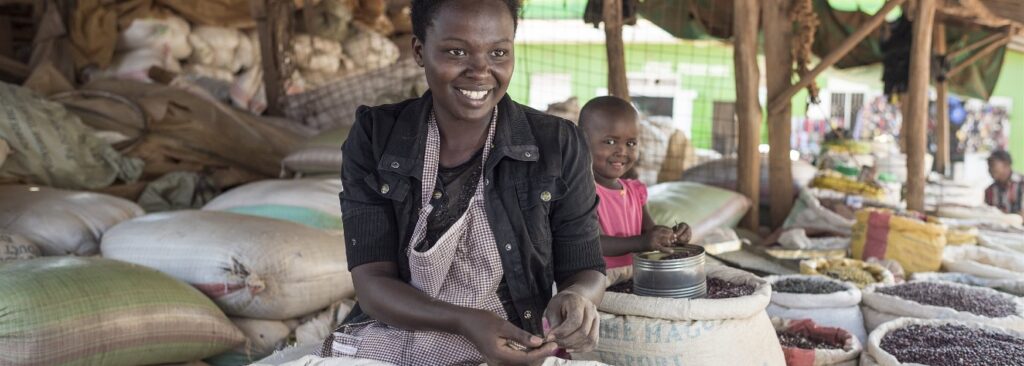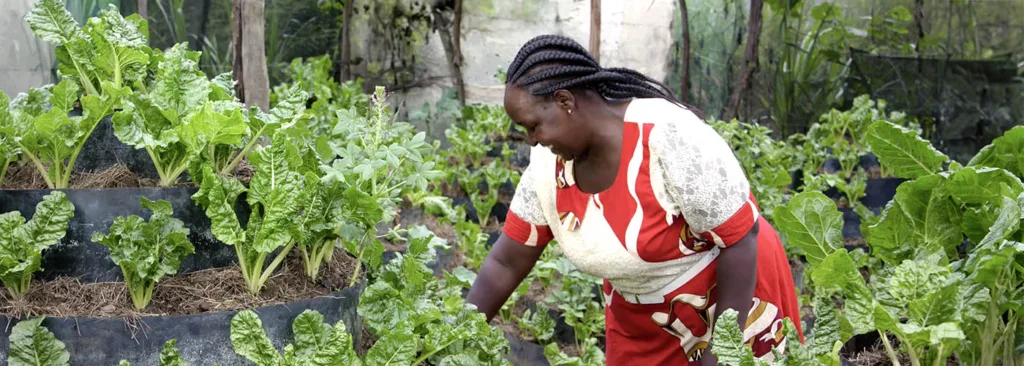Women are critical agents of change who can fuel socio-economic empowerment within their communities. Empowered woman are exactly what we need to tackle poverty and hunger. But more often than not, their voices are ignored by those who make the decisions that affect their lives.
Promoting gender equality and social inclusion
In Kenya, Ethiopia and Tanzania, many societies are both dominated by patriarchal norms and culture and afflicted by food insecurity and climate change. Women still have a limited say in decision making and control over their bodies, incomes, land, and crops, while they bear the burden of unpaid care work.
Our new program, Rural Women Cultivating Change (RWCC), seeks to change all this. RWCC employs multiple means to dismantle patriarchal cultures:
- Transformation of decision making structures
- Quick responses to Sexual Gender Based Violence (SGBV)
- Alleviating poverty and increasing women’s resilience to climate change
- Improving rural women’s incomes through agro-ecological and climate resilient agricultural practices
Main priorities of the program
RWCC aims to promote gender equality and empowerment of young and adult women – particularly women small holder farmers, female heads of households, and survivors of SGBV. It focuses on investments that improve women’s access to and control over productive resources (land, capital, inputs, and infrastructure) and promotes agro-ecological approaches to achieve food security and improve livelihoods.
Working with unique rightsholder groups
The program targets remote rural regions of Ethiopia, Kenya and Tanzania, where farming is the primary occupation and principal use of women’s labor. It operates right at the intersection of women’s rights and climate adaptation. The specific regions are: North Wollo Zone of Amhara Region in Ethiopia; Baringo, Nakuru, Laikipia and Kitui counties in Kenya; the Morogoro and Gairo District Councils of Morogoro, and the Babati and Mbulu District Councils of Manyara and Mwanga in Tanzania.
The program also works in collaboration with women’s rights organizations (WROs) and agricultural-based organizations to support climate adaptation, increase food security, enhance gender equality, reduce sexual and gender-based violence (SGBV), and improve livelihoods for rural women.
Where
Kenya, Ethiopia and Tanzania

